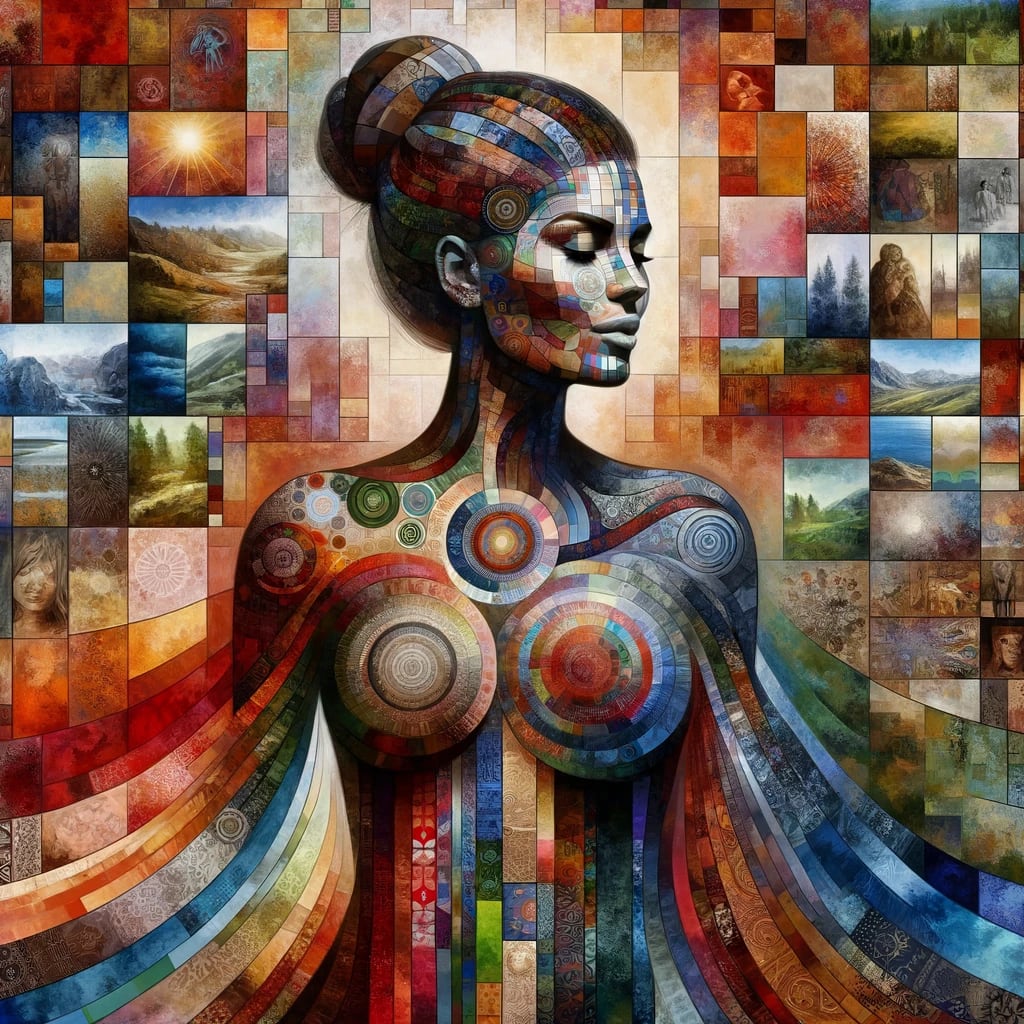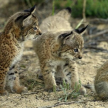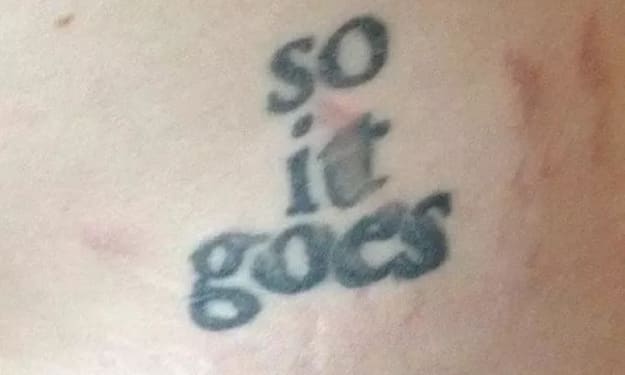What Is A Woman?
Definitional struggles of the modern world

When I see videos like the one below with Charlie Kirk persistently asking college students one question, "What is a woman?" and students stumbling to answer or seemingly not able to give him an answer that would satisfy his inquisitive mind, as a teacher I'm baffled.
Charlie's "What is a woman?" is obviously a request for a definition of a woman, and I am perplexed that people are stumbling to give it. But then I remember that we often take concepts and things for granted so much that we are caught off guard and wonder why we are even asked a "simple" question like that. In those situations, I usually tell my students, "I know it seems self-evident, obvious, and simple to the extent that you'd doubt my sanity even for asking, but please explain it to me like I am a 5-year-old who genuinely may not know."
Definitions matter. They help us develop the common language, come to conclusions and agreements and live peacefully together. In today's post-modern, post-truth, polysemic and polyvalent world, we find it more and more difficult to agree upon even the most basic definitions. For example, the words "liberal" and "conservative" mean quite different things to people from the opposing camps. Definitions matter even more if we don't want to live in a society that uses the same words but speaks a totally different language in terms of meanings. So, here I will digress a little into how we define things.
There are several ways to create shared definitions. The most common way, used by dictionaries, is descriptive. One way to describe something is to start from a broader, more general class of the known objects. For example, if you want to define "dove" you'd classify it within a broader class of birds: "Dove is a bird." Then add specifics that make that particular bird unique: "Dove is a mid-sized stocky bird with white feathers, a small head and a small pink beak." This is the denotative (direct and most accepted or agreed upon) meaning of the word, the first on the list in a dictionary.
The word "dove" will have other, less common connotative meanings. Something like, "Due to its pure whiteness and gentleness, dove is often used as a symbol of purity and cleanliness (Dove Co. logo) or peace and innocence (ancient Greeks started depicting it with a laurel branch in the beak and we are still doing it)," or "a person who favors diplomacy and peaceful negotiations over military action and hard lines in foreign policy." Connotative meanings are more culturally nuanced, are brought about by shared experiences of a particular group of language carriers and may not be the same across all cultures. That's why we have such a wide variety of proverbs and sayings that do not translate well into other languages.
Another common way to define things descriptively is through similarity to other things of the same class that may be known better. For example, "doves are similar to pigeons, but generally smaller and more delicate, and usually white, while pigeons are mostly grey." In dictionaries, you would often see that such definitions reference each other, e.g. "dove, see also pigeon."
Yet another common way to define things is through their opposites: "black is the opposite of white" or "dove is not a hawk" when referencing people's approaches to foreign policy. We do that a lot with the binary concepts: good-bad, light-dark, noisy-quiet, etc.
Going back to the definition of "a woman": I've watched enough of Charlie Kirk's "What is a woman?" videos to make an intelligent guess that he would probably accept the definition of "a woman is not a man."
I have recently asked this question in my Gender and Communication class. We've been talking about gender, gender roles and how gender is performed for the whole semester and I thought my students would have no trouble with it. Well, they did. One even asked if I wanted them to give a definition. When I said yes, the student said "somebody who has a uterus and a vagina." Then I asked if elephants are somebodies and if some of them have uteri and vaginas. When they said yes, I said, "So, an elephant is a woman?" That sent some of my students into a laughing fit.
Then I asked the students what class of beings both men and women belonged to. Human, they said. Through a series of other leading questions, we finally arrived to the common biological dictionary definition: "A woman is a female person/human being."
Where Charlie Kirk has students stumble is how our ideas of gender, i.e. what we think is feminine and masculine, are associated with the biological category of sex, i.e. female and male. To most conservatives, both gender and sex are binary and completely overlapping categories: If you are a woman, you must be feminine (gentle, soft, comforting, smooth, caring, devoted, building and maintaining connections in the community, etc.) and perform feminine roles in the society of a mother, sister, daughter and wife; if you are a man, you must be masculine (strong, enduring, competitive, leading, motivated for achievement and success, etc.) and perform masculine roles of a father, brother, son and husband who is a bread-winning head of household.
The world, however, is changing. On the biological front, we have finally stopped forcing the parents of intersex children (the third category on the biological sex dimension that throws off our neat binary male-female system, when babies are born with both female and male biological traits) to make a decision about "fixing their parts" to fit one of the two sex categories better. Because such babies are not rare and are made by nature, they cannot be discarded as "not normal," thus creating the need to redefine even the stable binary sex category.
It is even more complicated with the gender category, as both men and women can have features and characteristics of the "other" gender. Besides, there are more and more people who perform androgynous roles of both genders (think single mothers or single fathers) or who refuse to be constrained by the binary gender roles altogether and define themselves as non-binary "they" in the singular form. And that is what muddies the waters of clear-cut binary definitions, thus making people stumble at formulating them.
If you are curious about where you are on the gender dimension, I highly recommend to take an online sex-role inventory test that will be most probably surprising for you in terms of your gender personality. At least for many people who have taken it (including myself, and I take it every 2 years to see the change) it is quite revealing.
About the Creator
Lana V Lynx
Avid reader and occasional writer of satire and short fiction. For my own sanity and security, I write under a pen name. My books: Moscow Calling - 2017 and President & Psychiatrist
Enjoyed the story? Support the Creator.
Subscribe for free to receive all their stories in your feed. You could also pledge your support or give them a one-off tip, letting them know you appreciate their work.
Reader insights
Outstanding
Excellent work. Looking forward to reading more!
Top insights
Expert insights and opinions
Arguments were carefully researched and presented
Easy to read and follow
Well-structured & engaging content
Eye opening
Niche topic & fresh perspectives
Heartfelt and relatable
The story invoked strong personal emotions
Masterful proofreading
Zero grammar & spelling mistakes







Comments (21)
Wonderful descriptive and helpful analysis and thanks for sharing Lana. If I think of all the the examples of being judged by not slavishly following certain cultural defined expectations, I could fill a book. Like when my mother taught me how to knit garments for my action man toy, or my son went to ballet classes (until, sadly, he realised how unmanly some people thought him). Good to see an intelligent take on the subject and well done!
Second read...still interesting.
Good read.
I really enjoyed reading your perspective. Great article, well said!
Can we say that evolution has always been a conundrum, sometimes mixing up, or endowing both organs upon the same person. Only recently have we really started to bring the questions into the open forum. What is a gender? Where are the answers really. Will we ever find them out. truly. Great story, great questions.
What an excellent, informative, and transformative piece of writing! The 'surprise top story' I like to see. Congratulations!
Reckon I would have rather enjoyed this semester.
Very informative and well written. Congratulations on Top Story, it is a good thing to put out there for everyone to access.
Really interesting, thanks for your insights on this. Do you think there is a need to define 'man' and 'woman'; or a greater need just to accept that there are men with varying degrees of feminine qualities and women with varying degrees of masculine qualities? Which is totally normal and fine. But redefining gender due to variants is risky. We could end up losing the potency and celebration of the two sexes - which is actually a wonderful thing.
An really interesting read. I am not sure what I would say...On what level am I being asked...biologically...psychologically are we all the same then? I took the test and was quite disconcerted and surprised by the stereotypical choices. Congrats on TS.
Great article. You have really made me think about definitions. I took the test too. I came out as solidly feminine which surprised me as I am often described as having an androgynous nature. Anyway... very thought provoking. 👍
Interesting article which gives us a lot to think about. Too many times women are not even treated as equals to men, when usually they are superior
Very interesting article. I studied philosophy and enjoyed reading your thoughts on this topic :) Also I took the test, nothing jumped out at me but some of the questions were odd. Like the one about horoscopes. Anyways, thanks for sharing :)
Hi Lana, After reading your story, I had some questions. So I did some research. I was behind the 8 ball in the "gender identification" culture loop. I grew up learning that to be a "hermaphrodite," one must have been born with both genitalia present and that it was very rare. Now I find out that the term is offensive? But, according to : https://pubmed.ncbi.nlm.nih.gov/12476264/ it still is considered to be rare by definition of being both? Not to say that androgyny and hermaphroditism are synonymous. I have also listened to Charlie Kirk and consider myself to be a conservative woman with androgynous character traits and heterosexual even before he was born. And I'm okay with all of that and not at all confused or apologetic...lol I did take the quiz and fit into the feminine category. (I've used it to my advantage many times, too...even if some people might argue it's a man's world.) The way I look at this new culture wave of new identity is that I don't pay their bills and it's not my business. But I applaud you for opening the minds of your students to truly think about what they are feeding on...and for teaching an old dog like me some new tricks. (Does being a feminine dog make me a b?) Your article was very interesting and well-written. Thank you.
Great going! Keep up the fantastic effort—congratulations!
Fascinating article. Congrats on the TS.
Lana, this is very well written and an important lesson. I would, however, like to point out something that's missing from your dove analogy. There are several species of dove, and in fact, the white dove you use as an example is a mutation of the Ring-necked species and comparatively rare in nature. I'm not pointing this out to be argumentative, but to support your stament that how we define things is important.
I was with you right up to intersex - these people arr also either male or female, rather than a a3rd category :-D xx
Lana, what an excellent article. It really made me think about what I would say if you asked me "What is a woman?" I don't think it can be defined that easily because we are all individual within our womanhood. Do you define by roles or appearance? Is it as simple as biology? Is it a mindset? This has really got me thinking deeply especially as the society that we live in is becoming more fluid with regard to gender. This was very interesting. I'm going to think about what I would say if I was being barked at by Charlie Kirk. I didn't like that at all.
Hahahahhahahahahahahha I laughed so much when you asked if an elephant is a woman! This was a very fascinated read!
Thank you for sharing your perspective and teaching methodology—it's evident that you contribute significantly to creating an inclusive and thoughtful learning space.
This comment has been deleted